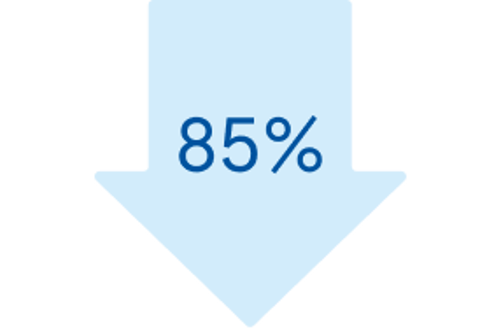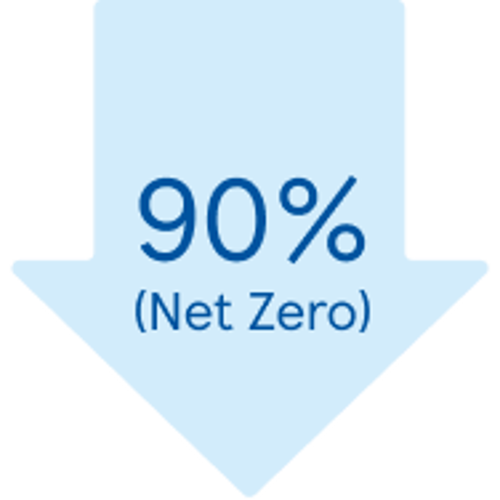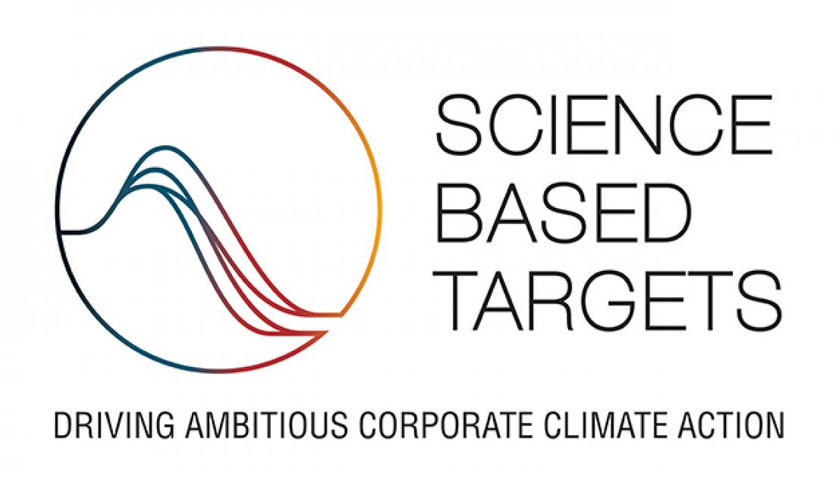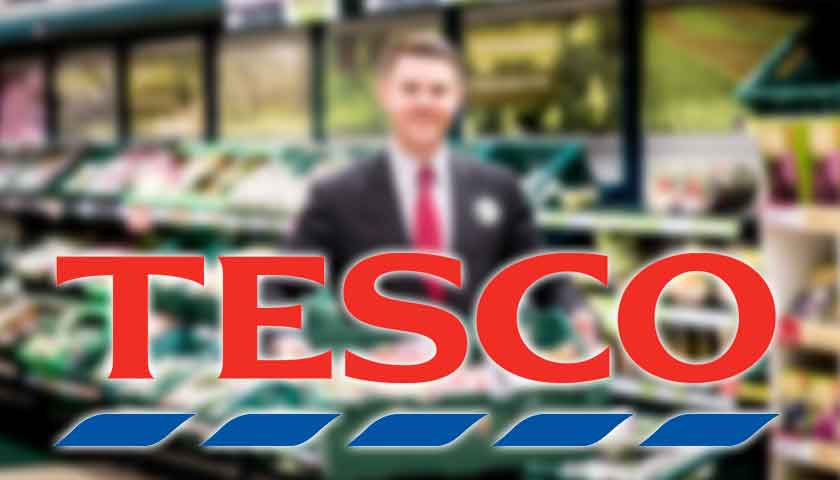Tesco has outlined an ambitious plan for emissions reduction across its own operations and value chain as it becomes one of the first retailers globally to have its net-zero science-based targets validated by the Science Based Targets Initiative (SBTi), the official body that validates climate targets.
Tesco’s targets include stretching interim commitments to reduce absolute Scope 1 and 2 emissions from its own operations by 85% by 2030 from a 2015 baseline year, absolute Scope 3 emissions from energy and industrial sources by 55% by 2032 from a 2019 baseline year, and absolute Scope 3 emissions from FLAG emissions by 39% by 2032 from a 2019 baseline year.
Tesco has also become one of the first companies globally to have specific, SBTi-validated targets focused on greenhouse gas emissions originating from ‘forests, land and agriculture’.
The validated targets will see Tesco work towards its commitment to become carbon neutral across its own operations by 2035, and value chain by 2050, in line with the Paris Agreement’s aim of limiting global temperature rise to 1.5C.
The retailer has set out its emissions reduction priorities through its Planet agenda. Activity will be grouped across six areas: Improve Products; Decarbonise Transport; Reduce Store Emissions; Support Sustainable Consumption; Eliminate Waste; and Protect Nature.
Activity will include the scaling up of deforestation-free feed sources; further roll-out of agricultural innovations such as low carbon fertiliser; and the continued decarbonisation of Tesco’s store estate and transport networks.
Ken Murphy, Tesco Group Chief Executive said:
“With the effects of climate change now upon us, we’re absolutely committed to achieving our target of net zero by 2050. It will require us to transform the way we run our business, from how we produce our products in partnership with our suppliers, how we run our stores and transport network, and how we encourage our customers to make healthy and sustainable choices.
“We’ve led the way on action on climate change, from adopting 100% renewable electricity across the Group, to scaling innovations in our supply chains. We now must work even harder, in collaboration with our suppliers and partners, to achieve our goals. These ambitious targets, validated by the Science Based Targets Initiative, now provide us with a clear roadmap of action over the next ten years and beyond.”
Tesco has led the way on tackling climate change, becoming the first business globally to set a net zero target in 2009, and in 2017, the first FTSE 100 company to set science-based targets for both its own operations and its supply chain.
Key progress to date across the Tesco Group:
- Adopting 100% renewable electricity.
- In 2022/23, achieved an absolute emissions reduction in its own operations of 55% against a 2015 baseline.
- Decarbonising its home delivery fleet so that all home delivery vans will be fully electric by 2030.
- Introduced the UK’s first commercial electric HGVs in 2021, with three now in operation.
- Completed the roll-out of the UK’s largest network of retail EV charging points, with 2,400 now in operation.
- Issued more than £1 billion in sustainability-linked bonds, linked to achievement of its Scope 1 and 2 emission reduction targets.
- Supporting suppliers to have net zero plans in place by the end of 2023.
Net zero across value chain by 2050
| % baseline footprint | 2025 | FY2030 (voluntary) | Near-term FY2032 (SBTi) | FY2035 (voluntary) | Long-term FY2050 (SBTi) | ||
|---|---|---|---|---|---|---|---|
| Scopes 1 and 2 (2015 baseline) | 3% |  |
 |
||||
| Scope 3 (2019 baseline) | Non-FLAG (all other Scope 3 emissions in scope) | 57% |  |
 |
|||
| FLAG (Forests, land and Agriculture emissions) | 40% | No deforestation |  |
 |
Note: FLAG = Emissions from Forests, Land and Agriculture.
% = % reduction.
Tesco’s Planet agenda will categorise work across six different areas, and will include a number of initiatives as it works towards the targets validated by SBTi:
Improve our products:
- 100% deforestation free across all primary risk commodities by 2025.
- LEAF Marque certification for all fruit and veg suppliers by 2025.
- Rolling out sustainable agriculture innovations such as low carbon fertilisers, across a number of its key veg suppliers.
- All wild-caught seafood to be MSC-certified by 2030.
- Suppliers to commit to a net zero ambition by the end of 2023 ((SBTI/1.5C)
Decarbonise transport:
- 100% electric home delivery fleet by 2030.
- Rolling out the use of electric HGVs in its transport network.
- Using rail freight where possible as a low emissions alternative to road miles.
Reduce store emissions:
- Adopting 100% renewable electricity across its operations, including the UK’s largest ever unsubsidised renewable power purchase agreement, funding five wind farms and four solar farms.
- Trialling and rolling out innovative technologies across its stores including heat pumps.
- Improving refrigeration efficiency and reducing refrigerant emissions in its stores and distribution centres by installing aerofoil technology, and retrofitting existing systems with more environmentally friendly refrigerant gasses.
Support sustainable consumption:
- Increasing the proportion of sales of healthy food to 65% by 2025.
- Better Baskets campaign to encourage customers to make better choices about the food they buy.
- Continuation of its voluntary commitment not to sell HFSS products through volume-led promotions.
Eliminate waste:
- Halve food waste in own operations by 2025 – five years ahead of the United Nations Sustainable Development Goal.
- Encouraging customers to waste less food at home through its ‘Use-Up Day’ initiative.
- All packaging will be fully recyclable by 2025.
- All paper and board used will be 100% sustainable by 2025.
Protect nature:
- Improving biodiversity at a landscape-scale, by supporting soil, water, pollinator and nature-based outcomes in priority locations, including the Wye & Usk, Cam & Ely and Soar in the UK, and South Africa, Kenya, and southern Spain.
- Engaging with world-leading international frameworks and driving supply chain traceability, by being part of the Science-Based Targets for Nature (SBTN) initial target validation group and the Taskforce on Nature-Related Financial Disclosures (TNFD) soy and palm pilots.
- Launching pesticide strategy for suppliers and farmers, and working to improve nature across Tesco’s estate by reducing pesticide use, planting wildflower margins and rewilding of landbanks.
Tanya Steele, Chief Executive of WWF, said:
“The effects of climate change and nature loss are already being felt around the world, and the food system is a key driver of these twin threats. We cannot safeguard our future and limit warming to 1.5 degrees without urgently transforming the way we produce and consume food, from ensuring deforestation-free supply chains to tackling overconsumption of meat and dairy.
“We welcome Tesco’s important step forward in setting SBTi-validated emission targets; this must now be matched by action to drive down emissions across their entire value chain.
“We are calling on all UK food retailers to match this ambition by setting science-based climate targets across their value chains, and acting to put our food system on a sustainable footing, from farm to fork.”


